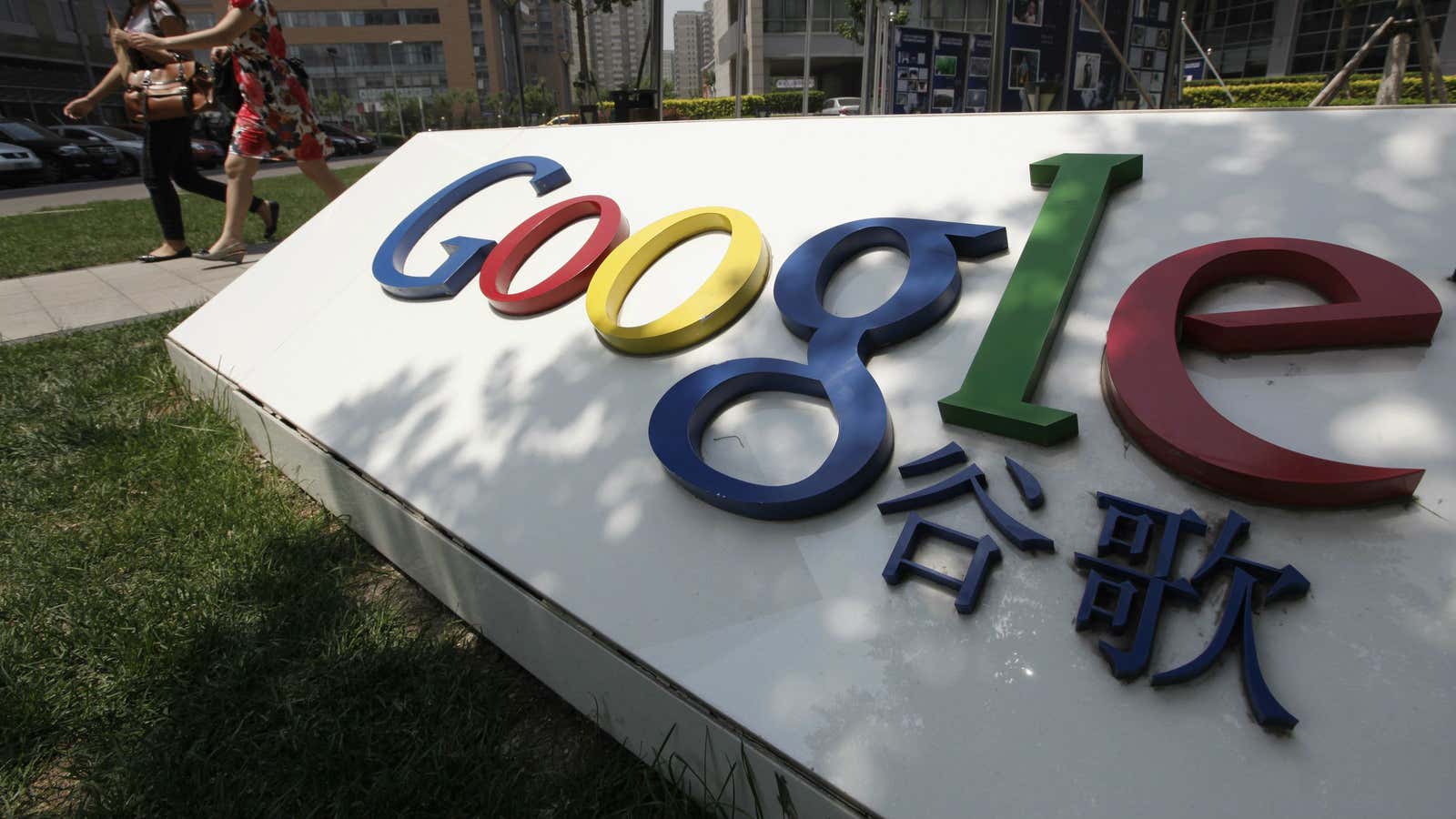Google’s code of conduct encourages employees to not be evil and speak up when they see something they think isn’t right. They’re speaking up now.
Roughly 1,400 employees have signed a letter demanding transparency around the tech giant’s return to China, The New York Times reported (pdf) on Thursday (Aug. 16).
Google’s reentry into China
Google pulled out of China in 2010 because of the country’s censorship policies, but has been gradually forging a path back to the nation that boasts more than 750 million internet users. The Intercept revealed earlier this month that Google was secretly building a version of its search product that would comply with the strict censorship laws in China, removing banned sites from search results and even blacklisting certain words and phrases. The project, codenamed Dragonfly, was expected to launch in a matter of weeks, according to the publication.
Most Google employees first learned of the project through the news reports.
A new era of ethical responsibility
Employees protested in a letter that urged Google to take ethical responsibility seriously, and start a dialogue to help staffers understand the global implications of their work.
“We urgently need more transparency, a seat at the table, and a commitment to clear and open processes,” said the letter, which has been making the rounds on Google’s internal communication systems. “Google employees need to know what we’re building.”
CEO Sundar Pichai, who is leading the effort in China, addressed Dragonfly during an internal meeting on Thursday. He told employees Google was not close to launching a search engine in the country and was “exploring many options,” according to CNBC.
The letter called for more than that—for “leadership to work with employees to implement concrete transparency and oversight processes.”
“We’ve always had confidential projects as a company,” Pichai told employees, according to an excerpt from the transcript of the meeting provided to Quartz. “I think what happened when the company was smaller, you had a higher chance of knowing about it. The company has obviously scaled up a lot more. We are as a company, I think, more committed to transparency than probably any company in the world and our intent is to be that way.”
The full text of the employee letter was published by the Times (pdf).
Update (12:30pm EST): This post was updated with an excerpt of the transcript of the Aug. 16 meeting.
